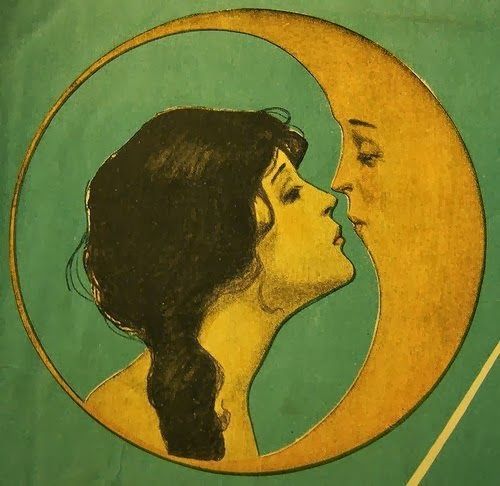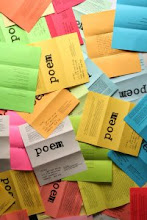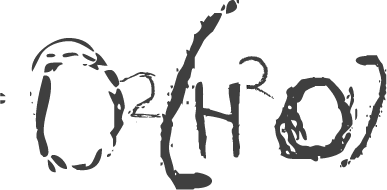above/ground press helped close off 2012 with the annual Christmas party/reading/regatta for the journal/group The Peter F Yacht Club [see John W. MacDonald's report on the 2005 event here and my report on the 2007 event here], with various contributors reading selections of new work, as well as from issue #17 of The Peter F Yacht Club.
The evening featured readings by Amanda Earl (top, with Janice Tokar in foreground), Marilyn Irwin (above, with Craig Calhoun in foreground), Roland Prevost, Janice Tokar, myself and Montreal's Kirya Marchand (accompanied by her Ottawa-based family), and an audiencethat included Rhonda Douglas, Craig Calhoun, jwcurry, Rachel Zavitz, Charles Earl, Christine McNair, Grant Wilkins and David Blaikie, as well as the very late Jason Wiens (who recently guest-edited a Prince George section of filling Station magazine, due out shortly).
Amanda Earl made a point of doing a "final reading" of her ghazal manuscript; final, at least, until the work is accepted as a full trade collection. Kirya Marchand has been an intriguing discovery, and she read the piece I first noticed of hers from a recent issue of Grain magazine [see my review of such here]. Marilyn Irwin read from her small chapbook [see my review of such here]. She is doing the most amazing things with small spaces, and now has work forthcoming in New American Writing. Janice Tokar read work that wasn't in the issue, due to the fact that the issue included some of her visual pieces (she and Grant Wilkins discussed the possibility of performing said works, so keep an ear out). I've been increasingly impressed with the work she and Roland Prevost have been doing over the past couple of years, and am interested to see what the new year brings for both of them.
As always (being the very nature of an event between Christmas and New Year's), there were those able to make it, and others who weren't, with notable absences (due to travel and/or family) by Pearl Pirie, Sandra Ridley, Anita Dolman, Vivian Vavassis, Stephen Brockwell, Monty Reid, Cameron Anstee and Gwendolyn Guth. The night was long, but we managed to make it longer, with the five of us (above: Marilyn, Christine, Jason, Craig and myself) lingering on into late hours I don't want to think about. A great night, overall.
Looking forward to 2013, and already scheming a half dozen new publications for the first three months of the new year! Jordan Abel? Joshua Marue Wilkinson? Abby Paige? Deborah Poe? Helen Hajnoczky? Wanda O'Connor? Subscriptions are still available for 2013 (of course).
Sunday, December 30, 2012
Friday, December 28, 2012
above/ground press titles make up nearly half of Amanda Earl's "Best of 2012: chapbooks" list
What do "best of" lists mean? Less when you aren't on them, I suppose. Ottawa writer, publisher and lit-blogger Amanda Earl was good enough to include ten different above/ground press chapbooks on her twenty-three chapbook "Best of 2012: chapbooks" list. With her original post here, I include her included list of above/ground press titles (with appropriate links): Christine McNair and rob mclennan, Prelude: selections from a collaboration ; Kathryn MacLeod, Entropic Suite ; Roland Prevost, Parapagus ; rob mclennan, Notes, on the subject of marriage: ; rob mclennan, Poem beginning with a line by Pinder ; Barry McKinnon, Into the Blind World ; Kemeny Babineau, After Progress ; Stephen Brockwell, Excerpts from Impossible Books, the Crawdad Cantos ; George Elliott Clarke, Selected Canticles ; Robert Hogg, from Lamentations. Thanks, Amanda!
Monday, December 24, 2012
some author activity: Ladouceur, Anstee, Ball, Pirie, mclennan + The Peter F Yacht Club,
One of Ben Ladcouceur's poems has been nominated by the editors of Prism International for a Pushcart Prize; Cameron Anstee wrote a nice review of some recent chapbooks by above/ground press author and small press legend Nelson Ball; both rob mclennan and Pearl Pirie participated in "the next big thing" blog self-interview, and both read in Ottawa in January as part of the A B Series (Pirie on the 10th, and mclennan on the 29th). And there are still spaces in rob mclennan's upcoming poetry workshops!
And don't forget our annual Peter F Yacht Club Christmas party/reading/regatta on the 29th!
Have you subscribed for the above/ground big 20th anniversary subscriptions? New publications forthcoming from Abby Paige, Jordan Abel and Joshua Marie Wilkinson, among others. Just what might 2013 bring?
Happy Seasonal things! From all of us to all of you, there;
And don't forget our annual Peter F Yacht Club Christmas party/reading/regatta on the 29th!
Have you subscribed for the above/ground big 20th anniversary subscriptions? New publications forthcoming from Abby Paige, Jordan Abel and Joshua Marie Wilkinson, among others. Just what might 2013 bring?
Happy Seasonal things! From all of us to all of you, there;
Saturday, December 22, 2012
Eileen Tabios reviews j/j hastain on Galatea Resurrects
I don't know how I missed it, but Eileen Tabios reviews two j/j hastain publications, including hastain's above/ground press title [Tabios' photo of same, above], over at Galatea Resurrects #18. Thanks, Eileen!
See the entire review, here. I include but a fragment:
See the entire review, here. I include but a fragment:
we / cum ::: come / in the yield fields / amongst statues with interior arms by j/j hastain
(above / ground press, Ottawa, 2012)
The yellow cover, as you can see, is thinner than the interior pages, beginning with that pale lavender page. It's as if the cover cannot contain what is inside. It's a perfect visual metaphor for how so many of hastain's poems -- including this chap-length one -- work: the poems reach out for engagement and often succeed. I love this highly-effective cover design!
we cum ::: come ... powerfully presents a fresh (read: fleshly-intelligent) spin on the love poem as well as the erotic poem. For instance, this excerpt:
Innervations of post-threshold threshing. Wanted all of your tattoos to be of wanting. Wanted you to come in my eyes so I could see. This dependency on ether-lipids. It matters to note that since then, we have never washed our sheets.
This poem, like many of hastain's, is enervated by the desire to create new worlds that go beyond gender as a reductive binary:
What other taunts in place of chronology or normativity?
Minarets seeping from ephemeral loins.
The language is paradoxically smooth -- the text flows so smoothly and yet carries a punch!
One should acknowledge the significance of the image on the front cover (palms with holes in their centers) as well as the epigraph:
"there is a word for incomplete and it begins inside" - Nathalie Stephens Touch To Affliction
To me this means that as hastain explores the creation of a new trans-(reductive) gender world, the explorer must be rooted with the explorer's interior (including naturally the psychological). (Perhaps the base for such a search cannot be the exterior when the birthed body often cannot encompass the individual's identity.) It is that search (for completion?) that makes for such a moving result. Yet hastain wisely avoids solipsism because so much of what hastain writes is also clearly inclusive of an Other, often the erotic partner.
In one section hastain writes, "In an attempt to get home we never rest." I first responded selfishly to that by hoping the poem's persona or hastain never gets "home" because the attempt generates such wondrously alchemical results -- for example, how this same section ends with
Multiplicitous labors to upkeep divergent foundations. Fecundations. We believed in veer. Tactics and tacits. Creamy ratios. The moon was this world's first cave.
Such sensuousness!
But, more importantly, the phrase is "...we never rest" not "...I never rest". hastain may be depicting an interior passage but what hastain's opened up as a possibility is that there is/are others within one and it wouldn't surprise me if hastain would be open, too, to being part of other's or others' interior explorations. A "hole" -- as is the case with certain Native American weavings -- represents a space for entry by others...
If the hole is within a proferred hand rather than more obvious alternatives, isn't the offer more intimate? More difficult to resist ... more easy to accept...?
Labels:
Eileen Tabios,
Galatea Resurrects,
j/j hastain,
review
Thursday, December 20, 2012
new from above/ground press: Poem beginning with a line by Pinder by rob mclennan
rob
mclennan
$3
1.
This is how a skein of ghosts appears in your inbox,
seawater spills, memory lines lie
still, sleep well,
float above the silence,
someone born and not yet
far too easy to get lost; upon this earth,
we singe and shrivel verbal,
alchemist
a bleeding sun, we absent-minded
sway like ink spots, tarnished; several times,
surrounding fidgets, green; mute, if
we could manage,
for the little sake, your
quick face, sharks
the creeping revelations, cloud and
cluster,
forms of warmth, calendar-belief,
take; a moment to respond,
published in Ottawa by above/ground press
December 2012
a/g subscribers receive a complimentary copy
The italicized
lines are borrowed from Toronto writer Sarah Pinder [her self-portrait above]’s chapbook, Obsolete
Objects in the Literary Imagination (Toronto ON: bits of string, 2011),
obviously owing a subsequent debt as well to Robert Duncan’s “A Poem Beginning with a Line by Pindar” (1958).
Born
in Ottawa, Canada’s glorious capital city, rob mclennan currently lives
in Ottawa. The author of more than twenty trade books of poetry, fiction and
non-fiction, his most recent titles are the poetry collections Songs for little sleep, (obvious
epiphanies press, 2012), grief notes: (BlazeVOX [books], 2012), A
(short) history of l. (BuschekBooks, 2011), Glengarry (Talonbooks,
2011) and kate street (Moira, 2011), and a second novel, missing
persons (2009). An editor and publisher, he runs above/ground press,
Chaudiere Books (with Jennifer Mulligan), The Garneau Review (www.ottawater.com/garneaureview),
seventeen seconds: a journal of poetry and poetics (www.ottawater.com/seventeenseconds)
and the Ottawa poetry pdf annual ottawater (www.ottawater.com). He
spent the 2007-8 academic year in Edmonton as writer-in-residence at the
University of Alberta, and regularly posts reviews, essays, interviews and
other notices at robmclennan.blogspot.com
To
order, send cheques (add $1 for postage; outside Canada, add $2) to: rob
mclennan, 402 McLeod St #3, Ottawa ON K2P 1A6 or paypal at www.robmclennan.blogspot.com
Wednesday, December 19, 2012
Edric Mesmer reviews Armantrout, mclennan + hastain at Galatea Resurrects #19 (A Poetry Engagement)
Edric Mesmer was good enough to review three above/ground press titles in a recent group review over at Eileen Tabios' Galatea Resurrects #19 (A Poetry Engagement) [see the full review here]. Thanks, Edric!
Custom
Rae Armantrout
above/ground press
2012
Practices inhabited herein might include: the role of the maternal under patriarchy, the engendering of personal memories, the cloak of downward American mobility—commonalities and not—or, emo-hipsters and reality TV stars, “with that small fist pump // now used / to indicate / irony’s uselessness.” No stranger to techniques minimalistic or the over-read line made modernly familiar by Jean Rhys, Armantrout’s work continues—here in small scale, else writ large—to [decipher phatically] the obscurantist’s archaeology of speech made poetry: “let volumes speak volumes.” To quote from is nearly to quote in entirety these four poems! As always, Armantrout’s syllables are scant but not underwhelming, tensile in prehensility: “Water-strider, pond skater, / Jesus bug // skitters across the surface / tension // and // the ‘least-area surface’ / (flat, smooth) // has a surface tension / of zero.” Why strand that and, uncoupleted? Just as deity and insect reconnect and make anew construct, so surfaces work, rework, make riptide of ripple.
Sextet: six poems from Songs for little sleep,
rob mclennan
above/ground press
2012
As a feather, falling. So might go a line in mclennan’s latest, off his Ottawa-based press, above/ground. Modernity on the half-shell, emphasis plays folie à deux; as though Woolf were whispering to Robert Lax through a hearing[,] trumpet filled with water. These poems, each writ in dedicatory fashion and epigraphed, fall halved in binomial sets. They may be lean, stark, like “Laden, speech. A poor frail body. Swims. A mouth shapes words.” Other times they forget their own rules, at best, as in one for Pearl Pirie, titled “The learning curve that sometimes manages, itself”: “The gathering place of something, we. I can’t recall. It was I who called, who called, who.” And, in an uncommon third section, a coda, from the same—“Was contemplating an action. In, action. Inaction. We were, contemplating, we. Action. We were simply, in. This was, simply. This simply, was.” Minimalism is not wager against the sentence, nor: it is here a direct action in media res that may append its own apprehension. How, like a comma.
we / cum ::: come / in the yield fields / amongst statues with interior arms
j/j hastain
above/ground press
2012
“Tears are a way of staring.” Perhaps, wrote Kristeva, also a form of nonverbal articulation… There are so many such articulations—verbal, at least partly—that one has the feeling of watching Balla’s dog awalk with feminism’s theoretician. I am reminded of the sway Irigaray’s words have long had over me: that there may be no way to utter outside the patriarchal forms of language inherited, but we try anyway. Such utterances iterate in one of hastain’s latest, as where the reader encounters “non-articulable gender,” “how to be other-than,” “You wanted me to name you there,” “Oh female he,” “our interactive contour,” “To be gripping and gridding differential like this,” “Tactics and tacits. Creamy ratios,” “Like scaling a curve.” Prose sections find again and over definitions we knew of ourselves but had no way to say, as where asking: “a rainbow when there is no sun?” A lunar rainbow then, known to appear over Niagara Falls on nights of full moon, as Margaret Fuller went looking for (but didn’t see) in 1843. It’s that hastain’s images continue to find embodiment that make xir work—not so far beyond the concept, so much closer than theory—“A form full of noise.”
Tuesday, December 18, 2012
new from above/ground press: Parlor, by Sarah Mangold
Parlor
Sarah Mangold$4
{AT ONCE IN SOLEMN COMPULSION}
She is behind us at this moment of first launching out. You’re the echo. How well
she bore the high spaciousness. Drove over eighty hours. Hers was an effectiveness.
Never a day she wasn’t drinking. Made its own terms in advance. My mind says
friend they’ve made you an enchanting table. Loosen up. You don’t begin
120 mg immediately. A well-shod foot extended to the blaze.
published in Ottawa by above/ground press
December 2012
a/g subscribers receive a complimentary copy
Sarah
Mangold [see her new tumblr here] is the author of Electrical Theories of Femininity (forthcoming 2013, Pavement Saw Press) and Household Mechanics (New
Issues, selected by C.D. Wright). Her most recent chapbooks include Cupcake Royale (above/ground press), I Meant to be Transparent (LRL e/editions), and An Antenna Called the Body (Little Red Leaves Textile Editions). From 2000-2009
she edited Bird Dog, a print journal of innovative writing and art and
currently co-edits FLASH + CARD, a chapbook and ephemera press. She is the
recipient of a National Endowment for the Arts 2013 Poetry Fellowship.
This
is Sarah Mangold’s second above/ground press title, after Cupcake Royale
(2012).
To
order, send cheques (add $1 for postage; outside Canada, add $2) to: rob
mclennan, 402 McLeod St #3, Ottawa ON K2P 1A6 or paypal at www.robmclennan.blogspot.com
Monday, December 17, 2012
"poem" broadside #315 / Queen’s University writer-in-residence (2012) poem-pick # 4: from Algonquin, by Ashley-Elizabeth Best
I
Hustled waves clasp down,
a coerced grip.
Your head bobs with the hurtled
waves, the broken dark, yawning wound
of the day called back.
My hands break their cases,
cracked on the first day, gift
of the muscling wind.
The sky chortles, flings its wrecked
hold upon our heads.
I murder the minutes, all the
waiting, the patience to suffer
night's opening.
II
I want to feel taken,
I want the flash dazzle
licks of your flame,
but I am often ugly and untender
and the river of our life is overflowing.
All I know is distance,
the delicate frame of these
moments alone, with you,
fastened to the sand
waiting for the grinding
rapids.
from AlgonquinAshley-Elizabeth Best recently placed first in the 2012 Great Canadian Literary Hunt in THIS magazine. She was on the poetry shortlist for the 2011 Matrix Litpop Awards and Prism's Poetry Prize 2012. She has work appearing in CV2 and a chapbook published with Cactus Press called Slow States of Collapse. Currently she lives and writes in Kingston.
by Ashley-Elizabeth Best
above/ground press broadside #315
& Queen’s University writer-in-residence
(2012) poem-pick # 4
(curated by Phil Hall)
Saturday, December 15, 2012
Poets in Profile: Roland Prevost + Allison Grayhurst at Open Book
Two above/ground press authors answer the "Poets in Profile" interviews over at Open Book: Ottawa poet Roland Prevost, over at Open Book: Ontario (anticipating his chapbook launch tonight), and Toronto poet Allison Grayhurst, over at Open Book: Toronto. Thanks, Open Book!
Labels:
Allison Grayhurst,
interview,
Open Book,
Roland Prevost
Friday, December 14, 2012
new from above/ground press: The River is Blind, by Allison Grayhurst
The River is
Blind
Allison
Grayhurst
$4
Blown
Blown like a grain of sand from a hollow twig.
It is beautiful to be blown.
Blown, into the winding forward thrust
where good happens with the movement
of each day and the fire-cracker burn
is a burn of celebration.
Carried through the radar-stream
into an easeful position where
the goal is getting nearer at a slow pace
and old patterns are disintegrating,
remembered but not renewed.
published in Ottawa by above/ground press
December 2012
a/g subscribers receive a complimentary copy
Allison Grayhurst has had her poetry
published in over 115 literary magazines in Canada, the U.S., England, India
and Australia. Her book, Somewhere Falling, was published by Beach Holme Publishers, a Porcepic Book. She
lives in Toronto, Canada with her husband, two children, two cats and a dog.
She also sculpts, working in clay.
To
order, send cheques (add $1 for postage; outside Canada, add $2) to: rob
mclennan, 402 McLeod St #3, Ottawa ON K2P 1A6 or paypal at www.robmclennan.blogspot.com
Thursday, December 13, 2012
new from above/ground press: A Note on the Text, by Seth Landman
A Note on the Text
Seth Landman
$4
A Note on the Text
I have used you
where other words are not
where I am
alone a little
walk a little strong wind
clear eyes full of stars
coming off the crystal the lake
seems to be tonight.
I will write later to light
matches. As much as we are that
we are sentinel listening
over the five or six miles
of threshold between
one town and the next.
This town I found
the cause of it
the river. I have used one thing
where I have had many and the winter
has been difficult and the winter
has not even started yet.
Burn purpose or burn
some big habit you can’t
go back to beforehand.
It will be hard to read
the reminders you set
in the dark preceding
the light in the morning.
By you I mean so it is not
strange but since and promised
and whole in sickness and in
any condition resisted
the big mind shining I know also that.
published in Ottawa by above/ground press
December 2012
a/g subscribers receive a complimentary copy
Seth Landman lives in Northampton, Massachusetts,
and is a member of the Agnes Fox collective. His first book, Sign You Were Mistaken, will be out in
January from Factory Hollow Press, and Tyoyeu (@tyoyeu), a collaboration with
the poet Seth Parker, can be found at www.tyoyeu.blogspot.com.
To
order, send cheques (add $1 for postage; outside Canada, add $2) to: rob
mclennan, 402 McLeod St #3, Ottawa ON K2P 1A6 or paypal at www.robmclennan.blogspot.com
Subscribe to:
Posts (Atom)




























